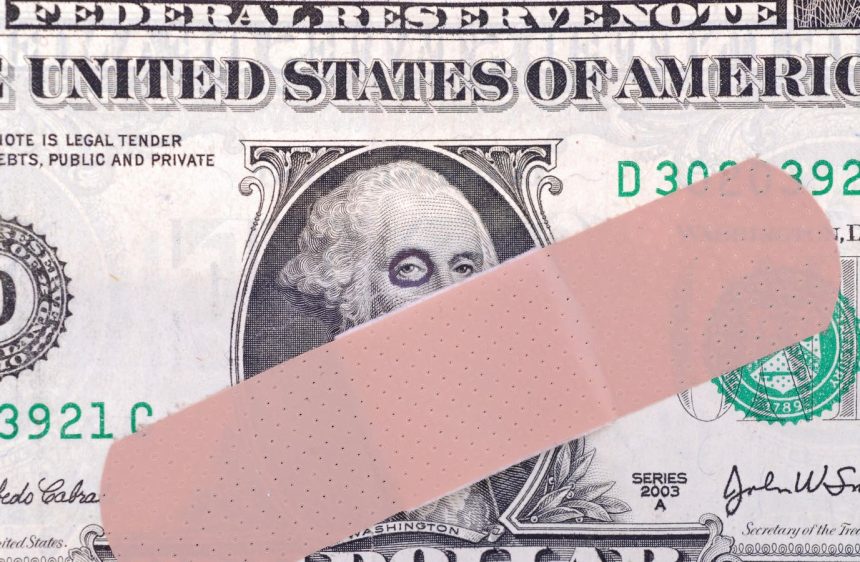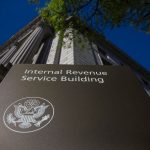Higher Interest Rates Could Cost U.S. Companies $380 Billion in Slowly Unfolding Crisis
Companies across the U.S. are barreling toward a refinancing cliff that could cost them billions in the new era of high interest rates, setting up a “slowly unfolding crisis.” New research published by Baringa, a global consultancy firm, found that companies that refinance between this year and 2030 will pay an additional $381 billion in interest costs due to elevated borrowing rates. This amounts to the largest single increase in debt-related costs and the highest cumulative interest payment total ever faced by U.S. companies. The largest expense is expected to occur in 2024, with more than $3 trillion in loans and bonds set to mature this year. Companies refinancing that debt will likely pay $76 billion more in interest this year than they did under lower interest rates, according to Baringa. [Fox Business]
U.S. Economy Grew at a Slower Pace than Initially Thought in 1st Quarter
The U.S. economy grew more slowly than initially thought during the first quarter. The Bureau of Economic Analysis’s second estimate of first quarter US gross domestic product showed the economy grew at an annualized pace of 1.3% during the period, down from a first reading in April of 1.6% growth and in line with economist estimates. The update to the first quarter growth metric “primarily reflected a downward revision to consumer spending,” per the BEA. Personal consumption in the first quarter grew at 2%, down from a prior reading of 2.5%. The reading came in significantly lower than fourth quarter GDP, which was revised up to 3.4%. [Yahoo Finance]
PayPal Is Planning an Ad Business Using Data on Its Millions of Shoppers
PayPal hopes to boost its growth by starting an ad network juiced with something it already owns: data on its millions of users. The digital payments company plans to build an ad sales business around the reams of data it generates from tracking the purchases as well as the broader spending behaviors of millions of consumers who use its services, which include the more socially-enabled Venmo app. PayPal in January introduced Advanced Offers, its first ad product, which uses AI and the company’s data to help merchants target PayPal users with discounts and other personalized promotions. Advanced Offers only charges advertisers when consumers make a purchase. Online marketplaces eBay and Zazzle have begun testing it. [The Wall Street Journal]
Walmart, Capital One End Exclusive Consumer Credit Card Agreement
Capital One and Walmart announced Friday that they ended the agreement that made Capital One the exclusive issuer of Walmart’s consumer credit cards. Walmart and Capital One launched their partnership in 2018 after the retail giant ended its two-decade partnership with Synchrony Financial. Capital One began issuing Walmart-branded credit cards starting in 2019. The announcement added that Capital One will retain ownership and servicing of the credit card accounts and that additional information will be provided in the coming months to Walmart credit card holders. The existing credit card portfolio represents about $8.5 billion of consumer loans. [Fox Business]
Visa, Mastercard to Pay $197 Million to Settle Consumer ATM Fee Lawsuit
Visa and Mastercard have agreed to pay $197 million to resolve a class action by millions of consumers accusing the financial payment companies of keeping cash access fees artificially high. The plaintiffs’ lawyers revealed the proposed accord on Wednesday in a filing, opens new tab in Washington, D.C., federal court. The settlement involves consumers who withdrew cash from bank-operated ATMs since 2007. Visa will pay $104.6 million in the accord, and Mastercard will pay $92.8 million. [Reuters]
25% of Consumers Recently Used a Buy Now, Pay Later Loan
Credit cards are the most commonly used form of credit, with 66% of respondents using them in the past 12 months. Meanwhile, 25% said they had used BNPL services in the last 12 months, according to a NerdWallet survey. BNPL programs often do not require a credit check or an application process, she said, making the use of these plans “so seamless that it’s very easy for consumers to adopt.” Far fewer consumers, about 10%, had used a cash advance app in the last 12 months. About 6% said they used a payday loan in the last 12 months. About 8% of adults in the NerdWallet survey said they used BNPL for necessities. An equal share, 8%, expect to use BNPL for necessities in the coming 12 months. [CNBC]
Credit Card Spending the Leading Reason Why 78% of Americans Have Debt Regret
A majority of Americans feel financial regret as personal debt soars to new highs. Roughly 78% said they had a financial regret, with 21% saying they most lamented “charging up too much credit card debt,” according to a Debt.com survey. Millennials regret their credit debt the most, and 45% said they feel guilty about “charging too much on their credit cards.” Baby boomers were the least concerned, with only 10% feeling regret over credit card debt despite having the most of it. Nearly 24% of baby boomers have $30,000 to $50,000 in credit card debt. Moreover, 49% of the respondents said their regrets about credit card debt are “always on their mind.” [Yahoo Finance]
Mastercard’s Crypto Credentials Peer-to-Peer Pilot Program Goes Live
Mastercard has launched its crypto credentials P2P pilot program in hopes of streamlining crypto transactions and eliminating user error for customers. The test includes Mastercard’s exchange partners Bit2Me, Lirium, Mercado, and wallet provider FoxBit. The credit giant’s crypto credentials system assigns human-readable ‘aliases’ to individuals, which are verified by Mastercard so that users no longer have to rely on sending and verifying the long string of numbers and letters characterizing traditional wallet addresses. [Coin Telegraph]
The Value of Mobile Banking Apps
Nearly 80% of U.S. banking consumers ages 18 to 42 cited mobile banking apps as a channel where they became aware of a bank’s offerings, per our October 2023 US Banking Consumer Habits survey. That far outweighs the proportions who cited other channels like bank websites (58.4%) and social media (37.4%). Even among banking consumers ages 43 to 77, more than half became aware of products and services via mobile app. That means encouraging greater app usage will help banks maximize cross-marketing opportunities. [eMarketer]
Are You Rich? Here’s The Net Worth You Need to Be Poor, Middle Class and Wealthy
The U.S. Census Bureau and other financial sources provide insights into these thresholds. Here’s a breakdown of median net worth across different economic classes: Poverty Class (Bottom 20%): The median net worth is $6,030. Lower-Middle Class (Next 20%): The median net worth is $43,760. Middle Class (Middle 20%): The median net worth is $104,700. Upper-Middle Class (Next 20%): The median net worth is $201,800. Wealthy (Top 20%): The median net worth is $608,900. [Benzinga]
Read the full article here
















